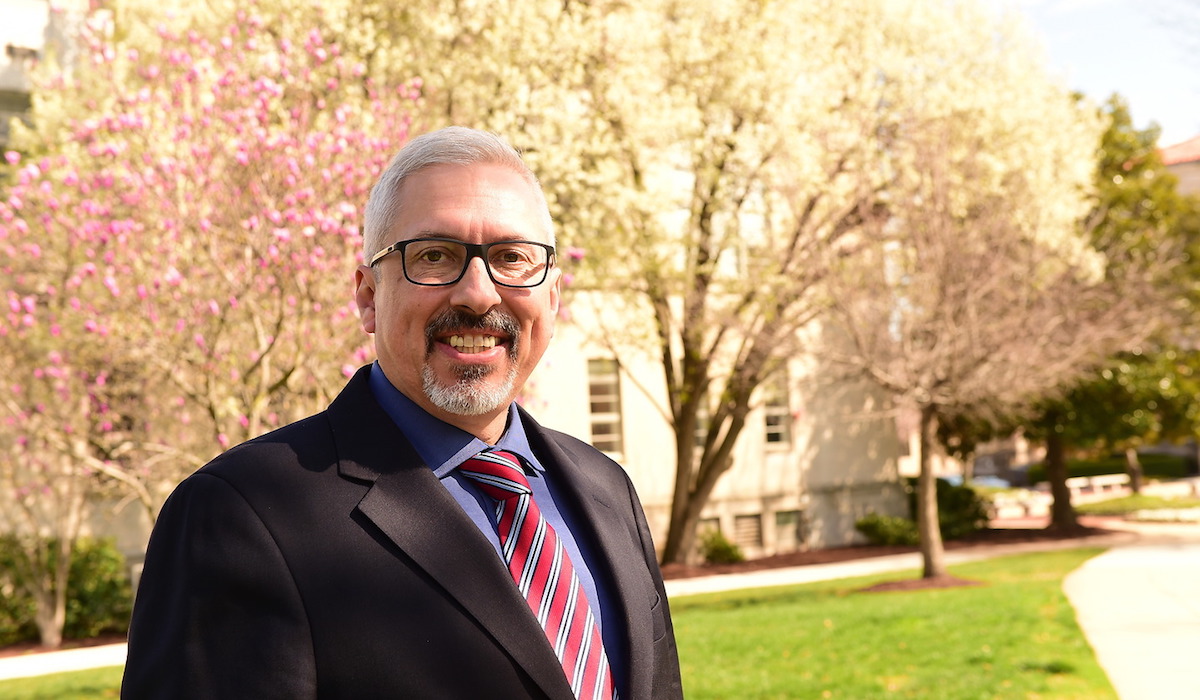

In addition to serving as University Provost, Aaron Dominguez is an experimental, high-energy physicist, studying the basic building blocks of nature. He is the recipient of the National Science Foundation CAREER award, and was elected a fellow of the American Physical Society for his research and leading contributions to the measurements of B-hadron properties for top quark physics, and for the search for and discovery of the Higgs boson.
At Research Day this spring, Dominguez spoke about the University’s work as a research university. This Q-and-A was adapted from that presentation.
What makes Catholic University a "research university"?
We’ve been serving the Church and the nation in various ways as a research university — not only as a college, not just as a place where you go to study, but as a place where you go to create new knowledge. Simultaneously, we are committed to and take seriously our Catholic faith and mission. Here, we look through these unified dual lenses of faith and reason and integrate them into ourselves as one whole Catholic university. For me that’s really beautiful.
Research is not just the domain of faculty, but of students, and it requires the participation and support of the whole community of staff, students, faculty, friends, donors, alumni, and families. It takes all of us. Research is our past, our present, and our future.
Why are you, personally, as a Catholic scientist, invested in raising the research profile of the University?
This is the first Catholic university where I’ve worked. This is the first place I’ve worked where you can publicly integrate faith and reason together.
I think there’s an artificial divide in the current culture: that faith and science are seen as incompatible or unrelated. For me, as a person, that’s never been the case. The kind of work that I do in particle physics is studying God’s creation at its most fundamental level. The greatest example of this is the Big Bang.
It’s a scientific fact that the universe came into existence out of nothing. The whole thing. The entire universe came out of nothing. There was no time, no space, nothing. That’s a scientific fact.
And at the same time, this can tell us something about God. This discovery is totally consistent with my understanding of who God is — as the creator of the Universe who existed before time, and who exists outside of the universe as its creator.
These are two pieces of information that strengthen my faith and strengthen my understanding of science, too.
I think there are many people who think like this, and we enjoy talking about it because it’s cool stuff to think about, and there is still so much to learn. What I really love about CatholicU is that, here’s a place where we can really have that kind of free discussion and exploration in the classroom and with our colleagues. We don’t have to be afraid of crossing some line when we talk about God. We try to know and love God, and to understand His creation, our place in it, and our relationship with each other and to Him. That is our job. That’s what I’m supposed to be doing! And that’s what we’re doing here.
I find this to be the most academically free and scientifically exciting place that I’ve ever worked.
— M.M.H.